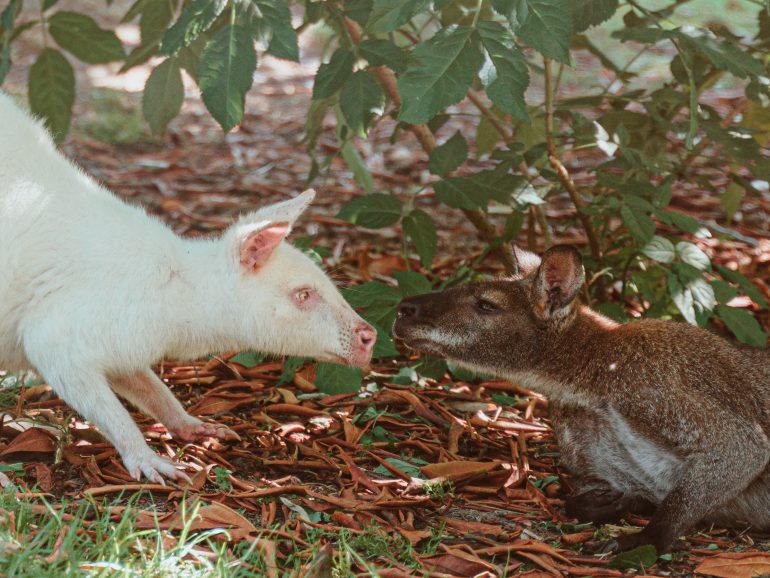Peer observation is terrifying. There, I said it. Many of us tertiary teachers walk into our first class with naught but a half-day orientation and perhaps a Faculty training course (only paid if we’re lucky!) under our belts and spend most of the semester awaiting, with dread, judgement from our students in the form of unit surveys. With such little pedagogical training, especially compared to professional teachers with education degrees, it’s no wonder we don’t feel particularly confident in seeking the opinions and guidance of our peers. With all of that said, even for more experienced teachers peer observation is far and above one of the most valuable teaching development exercises, and doing it within the relative comfort of a unit of study might just be the trick to getting started.
Why peer observation?
Peer observation can help teachers generate solutions to teaching challenges (Brookfield, 2017: 115–134), build confidence in teaching skills (Whipp and Pengelley, 2017), and expose participants to valuable new teaching strategies (Hendry et al., 2021). There is particular utility for tutors when the program is one of observation rather than review; they benefit from being both observer and observee (Bell and Mladenovic, 2008: 18). Lomas and Nicholls offer a number of suggestions for increasing participation in peer observation programs, but key in this situation is that they must be regular, non-judgemental, and non-evaluative (Lomas and Nicholls, 2005: 141). In this spirit, and with the responsibility of a large unit of study in the new-for-2021 FASS1000 ahead of me, the idea to run an intra-unit peer observation program began to percolate. I proposed that running a peer observation program within a pre-existing unit of study might be less intimidating than a large Faculty or University-wide program, especially for early career teachers, and thus may see respectable uptake. Pre-existing professional relationships between tutors facilitated with the help of pre-semester meetings and a Teams channel which hosted weekly check-in discussions would build this familiarity, and common weekly tutorial content would allow for meaningful and immediate feedback utility.
I am a huge believer in the fact that peer observation is an integral part of professional development, and that it should be formalised a lot more…
– FASS1000 tutor
It’s important to note that this program was not designed to replace Faculty or University peer observation programs, more to encourage participation and offer a soft introduction to them. Hopefully more regular peer observation programs developed specifically for tutors and at the unit level will see increased numbers in those larger and more inter-disciplinary programs.
Running a peer observation program
Of the 21 tutors who taught in FASS1000 in Semester 1 2021, 13 voluntarily took part in the program across Week 10 and Week 11. Putting together the program was very straightforward, and I followed the steps below in doing so. Some of these steps could be simplified for smaller units. It’s important to note that anyone teaching in a unit could run a peer observation program; ideally a unit coordinator would be responsible but a senior tutor could also take the lead, or a group of tutors teaching across different units could take it upon themselves to arrange one. It takes very little time to organise, and you’re very welcome to use my peer observation form (linked below) to mitigate the biggest part of the preparation. In an ideal world, of course, this is something casual academic staff would be paid to both manage and participate in, and fixed-term or continuing staff workloaded for.
- Develop a peer observation form. There are plenty of these floating around that you could adapt, and there’s no need to reinvent the wheel here. I developed one after reflection on past experiences with peer observation and an afternoon spent poring over key chapters in Brookfield’s Becoming a Critically Reflective Teacher. You’re very welcome to duplicate and use mine (FASS1000 Peer Observation Form), please let me know if you do! In my form, tutors were encouraged to reflect on their own teaching before they were observed, and communicate their needs to their observer in a five-minute pre-class conversation. Observers needed about half an hour afterwards to summarise their observations and thoughts, for return to their partner via email, and observees were then encouraged to reflect on that feedback.
One of the best aspects of this form is how it focuses on the positives in the classroom, which frames teaching and the peer observation process as something inherently positive, as opposed to a process where issues are identified to be corrected.
– FASS1000 tutor
- Decide on timing. One or two weeks towards the middle of semester would be appropriate. If you are running this in semester one and have any teaching staff completing the Graduate Certificate in Educational Studies (Higher Education), check in with them beforehand regarding timing, as one of their assessments involves peer observation.
- Confirm interest. An email to tutors extolling the benefits of peer observation (you could send them this article…) may help with this!
- Check availability. Check the tutorial times of interested tutors, and send out an email or DoodlePoll asking the others for availability on those dates and times.
- Create your schedule. Depending on how many tutors register their interest this can feel like a bit of a puzzle, but I found a simple spreadsheet helpful. I assigned different observers and observees; i.e. I observed Tutor 1, but was observed by Tutor 3.
- Communicate the schedule and send out the observation form. Clearly delineate the observer and observee roles, and ask pairs to contact each other to confirm and set up a time to chat beforehand – 5 minutes in advance of the tutorial was the norm in almost all cases.
- Evaluate the program. This is beneficial for both you and those who took part in the program. I used Qualtrics in order to preserve anonymity, and used the questions below.
-
- Did you find the FASS1000 peer observation program helpful in reflecting on your teaching? Please provide details if applicable.
- Did you find the peer observation form helpful in conducting your observation? What was most useful? Would you recommend any changes for next time?
- What other forms of professional development would you like to see in FASS1000 next semester, or in other units that you teach in?
- Do you have any other feedback about the FASS1000 peer observation program?
All of the tutors who took part in the FASS1000 peer observation program and filled in the evaluation (n=6) reported finding the exercise valuable, and expressed interest in participating in a similar program in the future. One tutor noted that the provision of professional development within their work environment made them feel valued and acknowledged. Suggestions were also made about further professional development within the unit, which will be developed for Semester 2.
I received valuable feedback from my peer observer that I will keep in mind while teaching in future
– FASS1000 tutor
So, not so terrifying anymore?
References
- Bell A and Mladenovic R (2008) The benefits of peer observation of teaching for tutor development. Springer.
- Brookfield SD (2017) Becoming a Critically Reflective Teacher. Jossey-Bass.
- Hendry GD, Georgiou H, Lloyd H, et al. (2021) ‘It’s hard to grow when you’re stuck on your own’: enhancing teaching through a peer observation and review of teaching program. International Journal for Academic Development 26(1). Routledge: 54–68. DOI: 10.1080/1360144X.2020.1819816.
- Lomas L and Nicholls G (2005) Enhancing teaching quality through peer review of teaching. Quality in Higher Education 11(2): 137–149. DOI: 10.1080/13538320500175118.
- Whipp PR and Pengelley R (2017) Confidence building through peer observation of teaching and peer coaching in university departments: A good investment for some and not others. International Journal of Mentoring and Coaching in Education 6(2): 99–115. DOI: 10.1108/IJMCE-07-2016-0059.






2 Comments